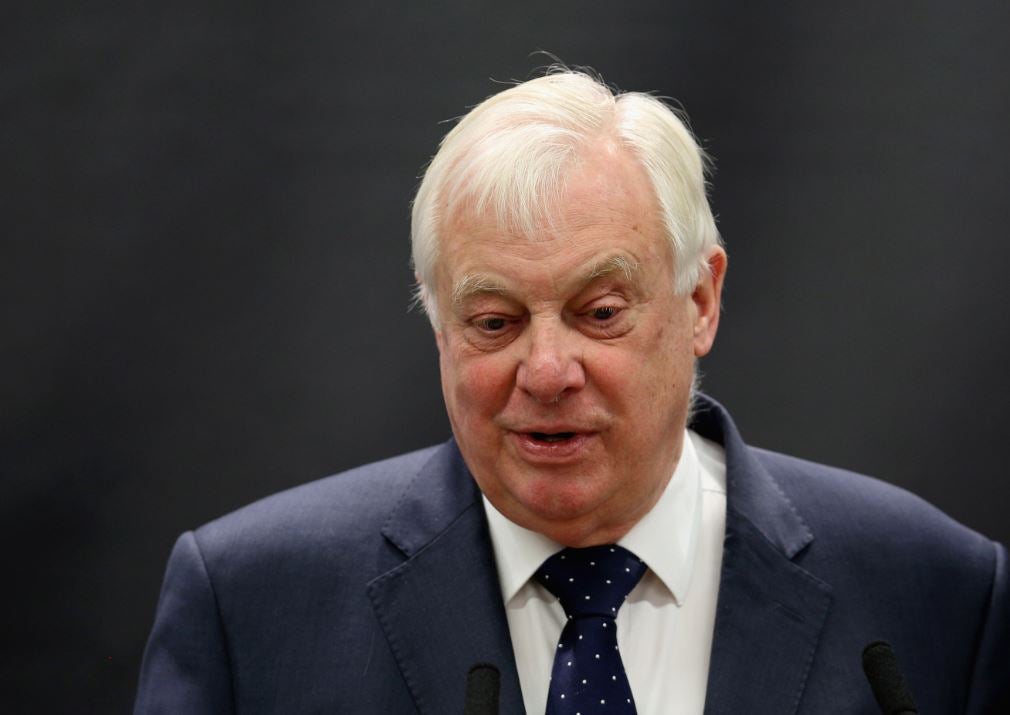
Former BBC Trust chairman Lord Patten has spoken out in defence of the “besieged” BBC as the Government prepares to publish a White Paper on the corporation’s future.
As part of a speech at the Reuters’ Institute Lecture on the future of the BBC, he also addressed reports that Culture Secretary John Whittingdale is said to want a BBC that is more “distinctive”.
In response, Patten said in his lecture: “Yes, it really would be ‘distinctive’ to strike Strictly or Bake-Off from the schedules because they’re too good and too popular. It would also be ridiculous. A BBC One that’s not popular wouldn’t be the BBC that licence payers demand.”
Whittingdale is being widely tipped to include a bar on the BBC going head-to-head with commercial rivals as part of the review of its charter.
He is due to publish a White Paper within weeks that will set out a tougher new regime as part of a proposed deal to grant a new Royal Charter to safeguard the service for another 11 years.
In the speech delivered at Oxford’s St. Anne’s College, Patten said the forthcoming charter is “the one chance we have to stop the BBC becoming more and more the plaything of the government of the day”.
He called for the end of the link between Charter renewal and the new fixed term Parliaments.
“How ridiculous it is that, because the Charter expires eighteen months after a general election, the BBC is bound to become a priority for any incoming government,” Patten said.
Patten also spoke of a “besieged” BBC and called for “everyone who cares” to “make our voices count.”
He said the corporation was under attack “by government. By the press. By Sky. By Google. By Apple”.
“Once a giant in the communications market” the BBC is “now dwarfed by multinational platforms who drive up the cost of content – of acquisition, of talent, of production, and of ideas – but have no interest in the UK except as a market”.
He added: “BBC’s real income has fallen over the past decade by more than 15 per cent,” he said before adding, in the past five years alone, “BSkyB’s revenues went up by more than 16 per cent, and ITV’s increased by 21 per cent”.
He said that in order for the BBC to produce programmes and services that inform, educate and entertain, terms spelled out in its Royal Charter, it would require a BBC “not just free of political control but free of political threat”.
“A BBC that can stop looking over its shoulder and waiting for the next White Paper,” he stated.
On the subject of politicians who “grab an easy headline at the BBC’s expense” he said “constituencies where the voters worry more about the BBC than they do about having a job … don’t exist.”
He also put forward the idea of a new Commission “to guarantee the independence not just of the BBC but of all broadcasting”.
Its roles, he said, would be to appoint the chairman and non-executive directors of the BBC. It would also recommend and publish proposals for future levels of BBC funding.
Finally, it would appoint the chair and deputy chair of Ofcom.
“Such a Commission would make it much more difficult for future governments to raid the licence fee,” he said.
Patten also talked of the public’s overwhelming support for the BBC. “The consultation exercise plainly failed to provide the answer Mr Whittingdale wanted,” he said.
The review of Mr Whittingdale’s plans for a reform of the BBC, one of the largest-ever public consultations, saw 81 per cent of respondents indicate satisfaction with the corporation’s content.
Patten praised the corporation’s output, including dramas such as Happy Valley, Wolf Hall, Sherlock and Line Of Duty and said: “No-one would invent the BBC today. But thank God our predecessors did. The BBC is one of this country’s greatest institutions.”
Email pged@pressgazette.co.uk to point out mistakes, provide story tips or send in a letter for publication on our "Letters Page" blog
